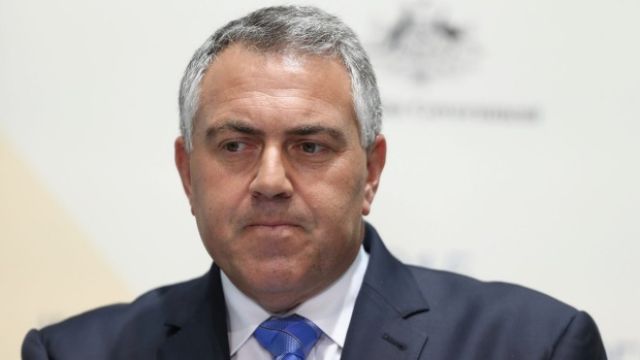
Several commentators have pointed out that treasurer Joe Hockey's Intergenerational Report is a partisan document designed to bash Labor over the head.
That assessment cannot be denied, but the more significant truth is that it is a weapon designed to bash us – the population – over the head.
One key indicator of anti-Labor bias is that the report – for the first time and “for no good reason whatsoever” according to The Guardian's Greg Jerico – includes projections based on the policies of the previous Labor government. Significantly, Labor's previous policy is taken as represented by the 2013-14 mid-year economic and fiscal outlook (MYEFO).
Jerico describes that MYEFO as “a document produced by the Abbott government and which saw the 2013-14 deficit increase by $10.26bn due to ‘policy decisions’ taken by the Abbott government [itself].
“[The MYEFO] was ... designed to make it appear the ALP had blown the budget, and thus using that as the starting point to predict budget deficits over the next 40 years is a fairly dodgy exercise.”
These assumptions – described as “garbage” by the Australia Institute's Richard Denniss – led to the dubious conclusion that debt would have reached 122% of GDP under a Labor policy setting.
However, calling out the anti-Labor bias only takes us so far.
The main message that corporate media have taken from this report – and the main “conversation” that Joe Hockey wants to have with the public – is that an ageing population means we cannot have decent, publicly funded pensions, health care or social services.
And it is not just right-wing commentators like Andrew Bolt or Peter Reith who are saying so.
Typical is the approach of Tim Colebatch in Inside Story. Colebatch accuses Hockey of putting “a politically partisan message and an economically responsible message in the same document”.
The “economically responsible” message Colebatch wants to promote is that we need to reduce the “budgetary burden of an ageing Australia”.
He criticises the partisan bias in the report — “this modelling is not serious analysis ... it is based on a false assumption, and hence comes up with false answers” — but only to more convincingly argue the case that “something’s gotta give”.
He mentions raising taxes as a possibility, but the overwhelming message from the corporate media is one of softening people up for cuts.
Similarly, academic and former Labor adviser Nicholas Reece roundly condemns the Abbott government's policy settings and hypocrisy. However, he also argues that “government transfers from younger to older cohorts are now so large that future budgets may not be able to afford them as the population ages”.
The truth is that the “crisis” of an ageing society is massively overstated to the point of being manufactured out of nothing. In the 1950s, Australia had a much larger portion of the population that was not in paid work than anything that is projected into this century as a result of an ageing population. This is because, in addition to the elderly, there were a lot more women who were not in the workforce and a much larger number of “economically inactive” children.
Further, Australia's GDP per capita — a rough measure of the country's wealth — continues to grow dramatically. In fact, per capita GDP growth has massively outpaced the growth in real wages, which is something every worker should remember next time the boss says there isn't enough money for a pay rise.
It is also something we should remember when the government says it cannot afford education or pensions.
The real alternative to Abbott's budget cuts — and the subtle or not so subtle media message that we cannot afford decent pensions, education and health care — is to take the money from the super rich through a fairer taxation system. The government now pays superannuation tax concessions to the very wealthiest that are comparable to the entire cost of the age pension.
A rich country like Australia should be talking about lowering the retirement age and raising pensions at the same time as we plan increased spending on renewable energy and other measures that will truly make lives better for future generations.
Like the article? Subscribe to Green Left now! You can also like us on Facebook and follow us on Twitter.